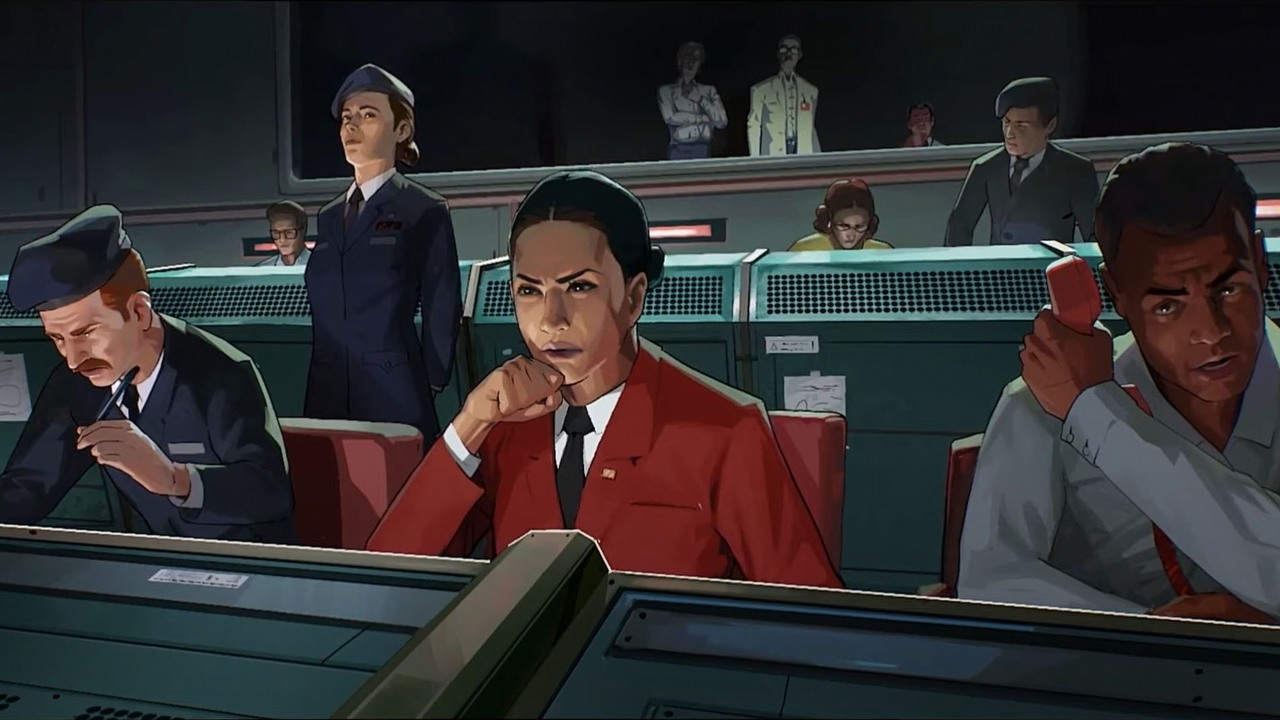First Reviews: Humankind - a New Rival to Civilization
First reviews of Humankind started appearing across the web. The game turned out to be a great alternative to the iconic Civilization, although it falls somewhat short of perfection.

Tomorrow Civilization's new rival is coming to our PCs, also as part of the Xbox Game Pass subscription. However, if you want to know more about the game in advance, first reviews of Humankind have already appeared online.
Humankind - selected review scores:
- Everyeye.it - 9/10
- Gameblog.fr - 9/10
- Gamereactor - 9/10
- TheSixthAxis - 9/10
- Eurogamer.it - 8/10
- God is a Geek - 8/10
- PCGamesN - 8/10
- Cultured Vultures - 7.5/10
- Game Watcher - 7.5/10
- PC Gamer - 71/100
- IGN - 7/10
So far there are not too many reviews of Humankind, but with a metascore of 80/100 (out of 19 texts at the time of writing the news; vide Metacrtic) and a lack of negative notes, it's fair to say that Amplitude Studios delivered a good, if - as some would have it - slightly too conservative title. It's not that there's a lack of interesting ideas here - on the contrary, the game has a lot of elements that cannot be found in the Civilization series. Humankind puts more emphasis on decisions during the development. At the beginning of each new era, we can choose a different civilization with unique bonuses. In this way, we have a chance to adjust the directed nation to our needs, for example, choosing a nation better suited to war or trade, which gives a countless number of combinations with the six avancements at our disposal . A side effect of the solution is that individual civilizations do not have the character of those led by Montezuma or Gandhi from Civilization.
Similar problems can be seen in several other elements. Even the combat system, which has been praised for its variety, was found by some reviewers to be slightly worse than the one known from the devs' other game, Endless Legend. The beginning of the game is, as one critic put it, a brutal sprint and the best introduction to a 4X game ever, but later the gameplay can overwhelm us with information (the interface doesn't help much here). So much so that in one review the author wondered if it wasn't more like a puzzle game. There are also complaints about the implementation of mechanics, be it the "undercooked" diplomacy or the few, but bizarre situations such as the inability to besiege cities on small islands (sieges can only be conducted on land).
It may sound like journalists are very critical of the title, but the truth is that virtually every reviewer praises the time spent with the studio's work. The improvements made since the last presentation of Humankind, such as more active independent tribes and, despite everything, the general polishing (although the game is not free of bugs), as well as the good tutorial. The audiovisual design has also been praised, although there are some references to occasional glitches such as units rarely disappearing. These and other imperfections may be eliminated at launch or in some future update.
To sum up: Humankind has not (yet) dethroned Civilization, but it's a great alternative to the series signed with Sid Meier's name. Amplitude Studios delivered a 4X title different from the competition, but giving a lot of fun experimenting with different civilizations and still causing the typical syndrome of one more turn. Whether it will convince the players, we'll find out soon.
0

Author: Jacob Blazewicz
Graduated with a master's degree in Polish Studies from the University of Warsaw with a thesis dedicated to this very subject. Started his adventure with gamepressure.com in 2015, writing in the Newsroom and later also in the film and technology sections (also contributed to the Encyclopedia). Interested in video games (and not only video games) for years. He began with platform games and, to this day, remains a big fan of them (including Metroidvania). Also shows interest in card games (including paper), fighting games, soulslikes, and basically everything about games as such. Marvels at pixelated characters from games dating back to the time of the Game Boy (if not older).
Latest News
- End of remote work and 60 hours a week. Demo of Naughty Dog's new game was born amid a crunch atmosphere
- She's the new Lara Croft, but she still lives in fear. Trauma after Perfect Dark changed the actress' approach to the industry
- „A lot has become lost in translation.” Swen Vincke suggests that the scandal surrounding Divinity is a big misunderstanding
- Stuck in development limbo for years, ARK 2 is now planned for 2028
- Few people know about it, but it's an RPG mixing Dark Souls and NieR that has received excellent reviews on Steam, and its first DLC will be released soon


